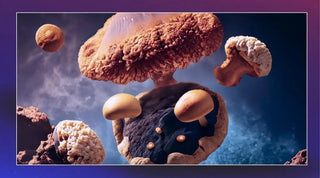Spacegoods Blog

Sep 12, 2023
Matthew Kelly
Studying with ADHD can be a challenge and so we’ve pulled together some helpful tips and techniques based on research, to make things easier for you. What is ADHD?...

Aug 4, 2023
Zara Brown
Welcome, to the shroom boom. A time where adding a dash of delicious mushroom superblends into your drink, is the norm. What a time to be alive 😎 Mushroom brands,...

Aug 4, 2023
Zara Brown
Microdosing refers to taking very small, sub-perceptual doses of psilocybin-containing mushrooms, typically every few days, with the aim of experiencing subtle effects without hallucinations or strong psychedelic experiences. While research...
